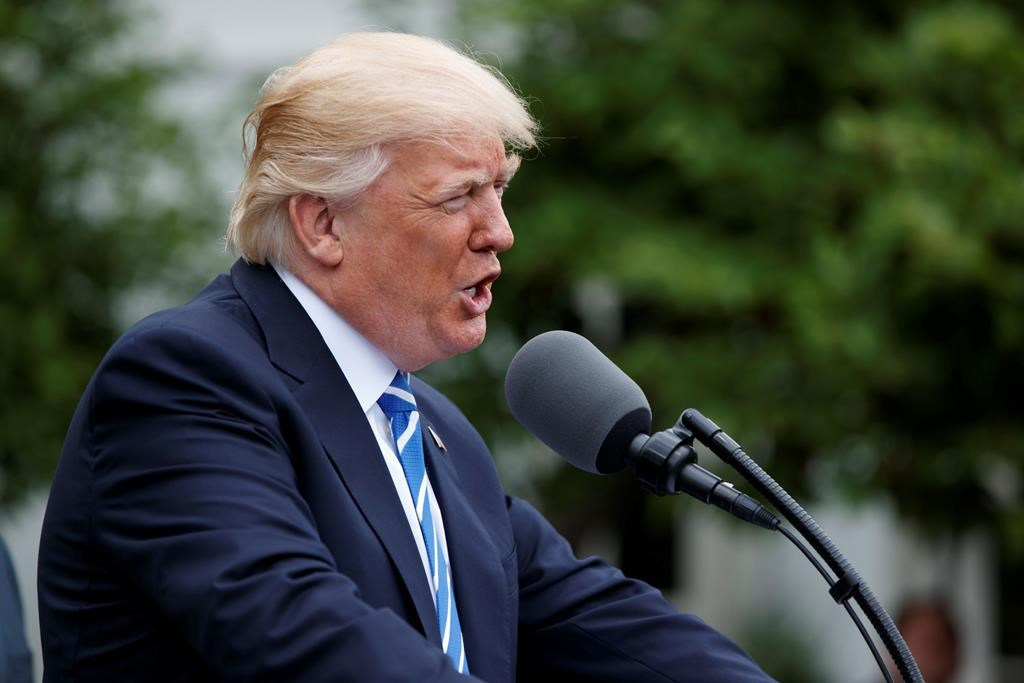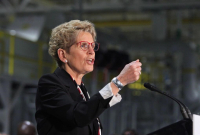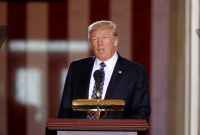Support strong Canadian climate journalism for 2025
The protectionist approach of U.S. President Donald Trump means European companies are looking to "exploit" new opportunities in Canada, the European Union's agriculture minister says.
That's one reason why Phil Hogan, the EU's commissioner for agriculture and rural development, is leading a trade mission of 60 mainly European food and drink companies to a major industry event Tuesday in Toronto.
That European business delegation stayed home while Hogan was in Washington last week for talks with U.S. officials, he told The Canadian Press in an interview Monday.
"We see Mr. Trump's declaration of being more protectionist as an opportunity for the European Union to be able to pivot to other parts of the world and other regions in order to exploit the potential that is there," Hogan said.
Hogan's visit comes after Canada's Trade Minister Francois-Philippe Champagne pushed the same trade diversification message on a trade mission to China last week where he had Canadian softwood lumber representatives in tow. As yet another softwood skirmish — the fifth in 35 years — was breaking out with the U.S., Champagne was stressing the need to find new markets for Canadian forestry products.
Hogan met Monday with Champagne and Agriculture Minister Lawrence MacAulay before heading to Toronto, where he and his entourage of European companies from 23 EU countries will attend an international food and beverage trade show.
Hogan said he's confident Parliament will ratify the Comprehensive Economic and Trade Agreement (CETA) before the summer break, which would mean more than 90 per cent of it would take effect under what is called provisional application.
The European Parliament ratified the deal in February.
Negotiations towards a similar EU-U.S. trade deal are not officially dead, but Hogan said that with Trump in the White House, they are currently on hold.
Trump's anti-trade policies represent an opportunity for Canada and the EU to build on trade links with each other and with other non-U.S. partners, said Hogan.
"We want to take the opportunity that this CETA agreement gives us now to have a win-win scenario for Canadian and European Union exports at a time when there is uncertainty in relation to trade in the United States."
The ongoing work on the world's post-Trump trade agenda continues Tuesday in Toronto when Canada hosts another round of talks of countries that used to be part of the 12-country Trans-Pacific Partnership trade deal, which would have encompassed 40 per cent of the global economy.
Unlike the U.S.-EU trade talks, which remain in limbo, Trump effectively declared the TPP dead when he pulled the U.S. out of the deal after his inauguration in January. The U.S. withdrawal amounted to a deal killing veto of the TPP because it was the largest of the Pacific Rim countries in the pact.
Canada joined the first round of post-TPP talks in Chile in March and agreed to host this week's round of talks, Champagne told reporters Monday in Ottawa.
Champagne said Canada wants to show that it "wants to be front and centre when it comes to open, principled trade in the Asia-Pacific region."




Comments